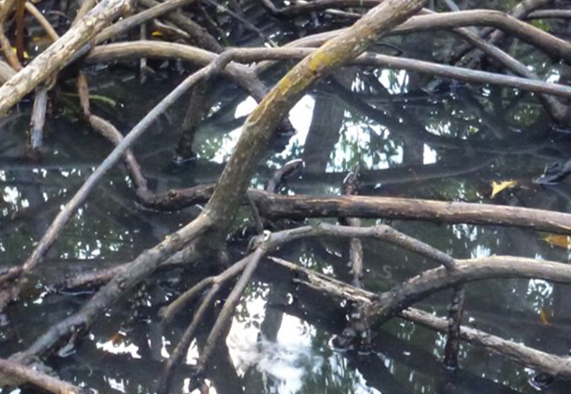Mangroves occur worldwide in the intertidal along tropical and subtropical coasts, a temporally highly variable environment. They are major players in the global carbon cycle, storing large amounts of organic matter in their above- and below-ground biomass, and even more so in the sediments, where microbial communities play an essential role in organic matter dynamics.
While tidal cycles are expected to have a strong influence on sediment microbial processes, the variability of the active microbial community over time, and its consequences for organic matter dynamics, has scarcely been investigated.
In this project, we study temporal dynamics of microbial activity in mangrove sediments on San Andrés Island (Colombia) over several tidal cycles. Using cutting-edge biogeochemical and molecular technologies, we investigate the influence of environmental fluctuations on the activity of the whole microbial community, as well as on specific microorganisms. The research is undertaken at three locations along an intertidal elevation gradient representing different tidal regimes. This approach will enable us to identify which factors shape sediment microbial processes over time, and to propose best practices in mangrove microbial ecology to improve the comparability of studies across different temporal and spatial scales.
Such knowledge is essential to understand and assess organic matter dynamics of mangroves ecosystems across time and space, including their carbon storage potential. Thereby, our study will provide a sound knowledge-base for coastal management and conservation actions to support ecosystem services provision under environmental changes.
Project Partner |
|---|
|
Dr. Christiane Hassenrück (former PI now at MARUM, Bremen, Germany) Dr. José Ernesto Mancera Pineda (Universidad Nacional de Colombia) Dr. Olga Jeske (Leibniz Institute DSMZ – German Collection of Microorganisms and Cell Cultures) |





